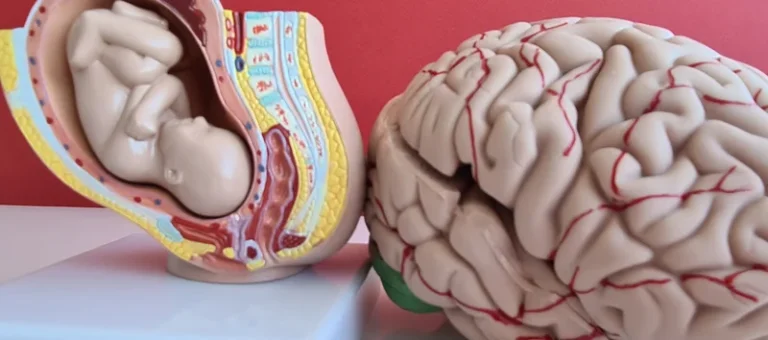
Doctors will not usually prescribe medications for coping with stress, unless they are treating an underlying illness, such as depression or an anxiety disorder. According to the American Psychological Association (APA)’s annual stress survey in 2018, average stress levels in the United States were 4.9 on a scale from 1 to 10. The survey found that the most common stressors were employment and money.
Avoid unhealthy habits
- The content on this website and all AIS publications are for informational purposes only.
- If you repeatedly argue about the same subject with the same people, stop bringing it up or excuse yourself when it’s the topic of discussion.
- Instead of coffee or energy drinks, try green tea.
- Tips for managing stress include exercise, setting priorities, counseling, and more.
- These body reactions can be helpful during times of stress, anxiety, and other emotions, motivating you to take action or solve problems.
- Your heart rate slows, blood pressure drops, muscle tension decreases, and the production of stress hormones is decreased.
- This reflex triggers when you’re underwater, slowing your heart rate to conserve oxygen.
We need the body’s stress (“fight or flight”) response to get us through tough times. When danger subsides, your body goes back to normal operations. Complementary and integrative health specialists, mental health professionals and other healthcare professionals can teach many relaxation techniques. Several Alcoholics Anonymous vitamins and minerals play an important role in your body’s stress response and mood regulation. As such, a deficiency in one or more nutrients may affect your mental health and ability to cope with stress.

More On Stress Management

Studies show that spending time in green spaces such as parks and forests and being immersed in nature are healthy ways to manage stress. Another way to take control of your stress is to stay on top of your priorities and avoid procrastinating when you aren’t feeling stressed. Being selective about what you take on — and saying “no” to things that will unnecessarily add to your load — can =https://ecosoberhouse.com/ reduce your stress levels. Still, people sensitive to caffeine may experience increased anxiety and stress after consuming less caffeine than this, so it’s important to consider your tolerance. Consuming too much may worsen anxiety, according to a 2021 review of literature on the subject. In turn, this may increase stress and anxiety symptoms.
Register for an enhanced, personalized experience.
- This is chronic stress and can put you at risk for heart problems like heart disease and depression.
- The body’s fight-or-flight mechanism tells a person when and how to respond to danger.
- Laughter goes a long way towards making you feel relaxed.
- The more you practice these techniques, the more naturally they will become a part of your stress management repertoire.
- Knowing the details about a potential treatment can help prevent it from adding to any ongoing stress.
It may appear as cognitive problems, such as poor concentration and indecisiveness. Emotional symptoms of stress include crying, irritability, and edginess. And stress can also show up as negative behaviors. “Driving a car too fast, overeating, or smoking can all be behavioral symptoms of stress,” says Dr. Webster. Stressful experiences come in many forms, such as a demanding job, a chronic disease, or an argument with a loved one. But all types of stressors—even stress from positive experiences,such as planning a party—can result in the same physical and emotional burden on health, especially when you’re an older adult.
About Medical News Today
Use these tips to prevent or reduce chronic stress. “We need a well-equipped tool belt of coping skills because stressors are going to look and feel different. They’re going to impact you and affect you differently,” emphasizes Dr. Markley. If one relaxation technique doesn’t work for you, try another one.
Gratitude also reminds you of all of the resources you have to cope with stress, which can be quite empowering. Positive self-talk can help you develop a healthier outlook. And an optimistic and compassionate conversation can help you manage your emotions and take positive action. Harsh self-criticism, self-doubt, and catastrophic predictions aren’t helpful.

Mental Health
- Creating boundaries — especially with people who add to your stress levels — is a healthy way to protect your well-being.
- And the best news is, there are many different kinds of activities that can reduce your stress.
- Numerous studies indicate social support is essential for maintaining physical and psychological health.
- My mind frequently wanders, but I just bring it back to the prayer again.
- Stress is an inevitable part of life, and it’s impossible to avoid or eliminate it.
You can free up time by practicing time-management skills like asking for help when it’s appropriate, setting priorities, pacing yourself and reserving time to take care of yourself. People who use nicotine often refer to it as a stress reliever. But nicotine actually places more stress on your body by increasing physical arousal and reducing blood flow and breathing. If you find yourself too stressed to sleep, consider developing a new pre-bedtime routine, including a long bath or a cup of caffeine-free herbal tea. And planning for tomorrow earlier in your day can help alleviate stress related to what’s to come.
- One study found that anxiety levels decline in people who were coloring complex geometric patterns, making it a perfect outlet for stress reduction.
- According to the American Psychological Association (APA)’s annual stress survey in 2018, average stress levels in the United States were 4.9 on a scale from 1 to 10.

If you would like more tools to help you combat stress in your life, you can find a variety of resources on the Substance Abuse and Mental Health Services Administration’s website. And, as always, if you or someone you know is struggling with a mental health crisis or having thoughts of suicide, call or text the Suicide and Crisis Hotline at 988. Working out regularly is one of the best ways to relax your body and healthy ways to cope with stress mind. Adequate sleep fuels your mind, as well as your body.
If your own poor choices contributed to a stressful situation, reflect on them and learn from your mistakes. Ask yourself how important it will be in the long run. If the answer is no, focus your time and energy elsewhere. Try to find a balance between work and family life, social activities and solitary pursuits, daily responsibilities and downtime. Receive FREE up-to-date information on how to manage your stress and live a content life.
